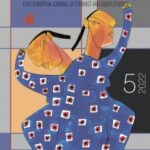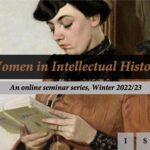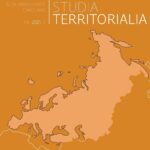 Forschungsplattform GAIN – Gender: Ambivalent In_Visibilities (Web)
Forschungsplattform GAIN – Gender: Ambivalent In_Visibilities (Web)
Time: 12.12.2022, 18:00-20:00 Uhr
Venue: Campus of the University of Vienna, Aula, Spitalg. 2, 1090 Vienna
Schedule (PDF)
- 18:00: Welcome by Elisabeth Holzleithner, Head of the Research Plattform GAIN, Prof. of Legal Philosophy and Legal Gender Studies, Univ. of Vienna
- 18:10: Introductory remarks by Christa Hämmerle, Deputy-head of GAIN, Associate Prof. of Modern History, and Andrea Lehner-Hartmann, GAIN member, Prof. of Religious Education and Catechetics at the Department of Practical Theology, Univ. of Vienna
18:30: Input by panellists:
- Birgit Sauer, GAIN member, Prof. Em. of Political Science, Univ. of Vienna
- Kristina Stoeckl, Prof. of Sociology, Univ. of Innsbruck
- Friedrich Chernyshov, LGBTQI+ activist, executive director of a Ukrainian NGO for trans*people – Trans*Generation NGO
- Kateryna Busol, Ukrainian lawyer specialising in international human rights, humanitarian and criminal law, Univ. of Regensburg
- Discussion chair: Sylvia Mieszkowski, Deputy-head of GAIN, Prof. of British Literature at the Department of English and American Studies, Univ. of Vienna
This event organised by the Research Plattform GAIN, a contribution to Campus Aktuell 2022, sets out to interrogate critically and from an intersectionally gendered perspective how the media have been and still are reporting on the Russian Federation’s war of aggression against Ukraine. Especially in times of war, media discourses tend to simplify matters. In the face of the complex political constellation, the historical entanglement of Ukraine and the Russian Federation as well as … read more (PDF).

 European research network on discourses of marginality and de-marginalization (DeMarg)
European research network on discourses of marginality and de-marginalization (DeMarg)  Forschungsplattform GAIN – Gender: Ambivalent In_Visibilities
Forschungsplattform GAIN – Gender: Ambivalent In_Visibilities  Feminist Critique: East European Journal of Feminist and Queer Studies
Feminist Critique: East European Journal of Feminist and Queer Studies  The International Society for Intellectual History (ISIH)
The International Society for Intellectual History (ISIH)  Acta Universitatis Carolinea – Studia Territorialia
Acta Universitatis Carolinea – Studia Territorialia  Forschungsplattform GAIN – Gender: Ambivalent In_Visibilities: GAIN Gender & Agency Lecture
Forschungsplattform GAIN – Gender: Ambivalent In_Visibilities: GAIN Gender & Agency Lecture